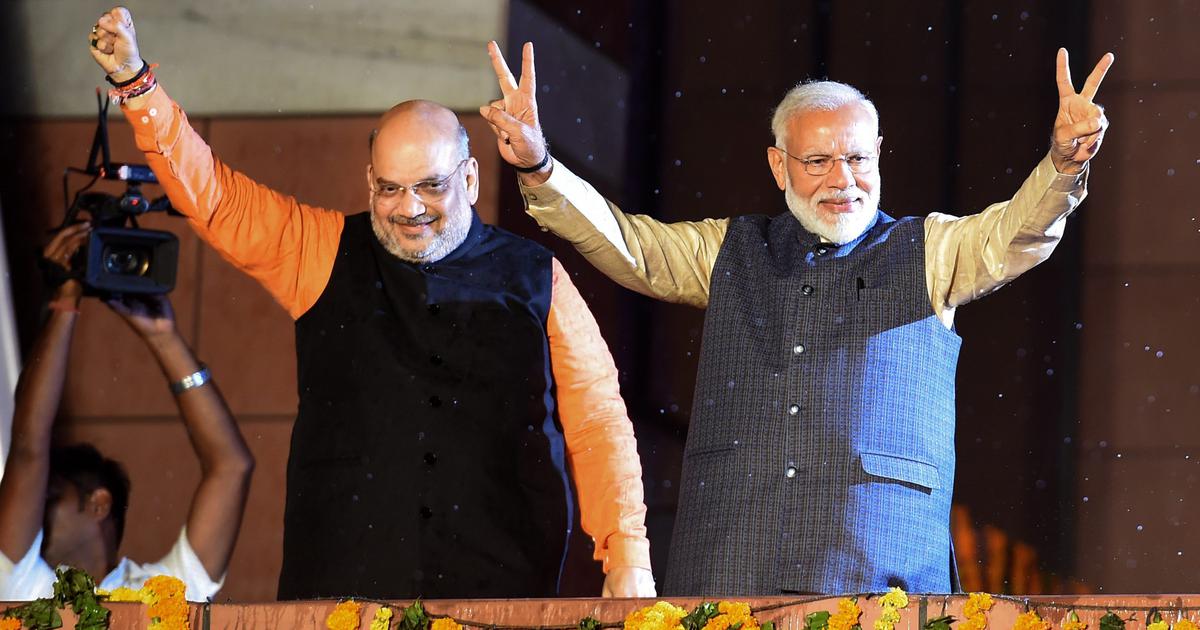Modi Sarkaar’s revocation of Article 370 was not less than any slow burning thriller, until the Home Minister Amit Shah let the cat out of the bag. It was a plotted show as the incidents like deploying of security forces, house arrest of famous political leaders such as Mehbooba Mufti, Omar Abdulla, etc, snapping of communication modes including internet occurred at right time and at the right place.
Much against the objections raised by opposition members inside and outside the Rajya Sabha, Amit Shah did not scrap the article 370. The Article 370 gave a special status to the state of Jammu and Kashmir. It specified about the Indian Constitution jurisdictions over the state which had initially opted for a separate constitution during 1950’s. Article 370 stays very much intact as part of the Constitution and cannot be repealed or abrogated without a constitutional amendment as per the Article 368.
Amit Shah commented, “Not all the provisions of Article 370 will now be implemented in Jammu and Kashmir.”
He used the same Article 370 to announce that the special status for the state of Jammu and Kashmir has ended. It is done with the support of a presidential order that will replace the existing presidential orders issued under Article 370 that was made during the time of constitution writing.
The revocation of Article 370 means that the government gives full applicability to Indian Constitution, unlike the earlier one that had the applicability of limited provisions. The separate constitution for Jammu and Kashmir ceases to be in operation with immediate effect. This further gave an opportunity to the state government to redraw the map of the state.
This implies that the state of Jammu and Kashmir has been bifurcated into two union territories namely Jammu-Kashmir and Ladakh. J&K has its own legislative assembly similar to that of Delhi and Puducherry, while on the other hand, Ladakh doesn’t have its own legislative assembly much like the five other union territories that are centrally administered. The Governor of Jammu-Kashmir will now become Lieutenant Governer.
There will be a single citizenship that is – Indian. The tricolour will be the only national flag of the state. Assembly duration in J&K will be of 5 years, unlike the previous duration of 6 years of the legislative assembly. The children of the state will benefit from RTE (Right To Education).
The separate Ranbir Penal Code (RPC) will make way for Indian Penal Code (IPC). With the separate constitution gone, RPC is also gone. The status of Jammu and Kashmir penal code will be redefined.
The recalling of Article 370 gives the right to Kashmiri women, who marry non- Kashmiri men to claim their right on the inheritance of property. They can now claim ancestral property as well. The earlier constitution did not give the Kashmiri women marrying non-Kashmiri men the right to claim or inherit the property.
Other segments such as education and employment will be open to all Indian citizens without any discrimination as stated in Article 35A, which had a clause of being a permanent resident of J&K. The college admission and government jobs will have the central quota laws just like other Indian states. This also scraps the clause of only permanent residents eligible to buy land/ property in J&K which prevented the corporates to set up in the state. RTI that was not applicable till now, will be in effect.
Last but not the least, Article 360 that states the law of financial emergency will be implemented from now on. Well, it is a historic move that has trembled the roots of Indian history.





